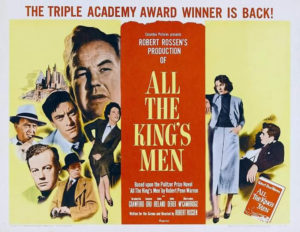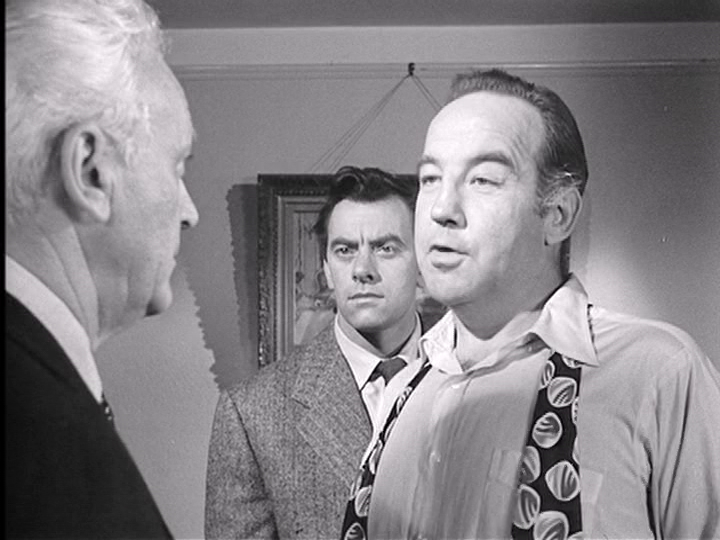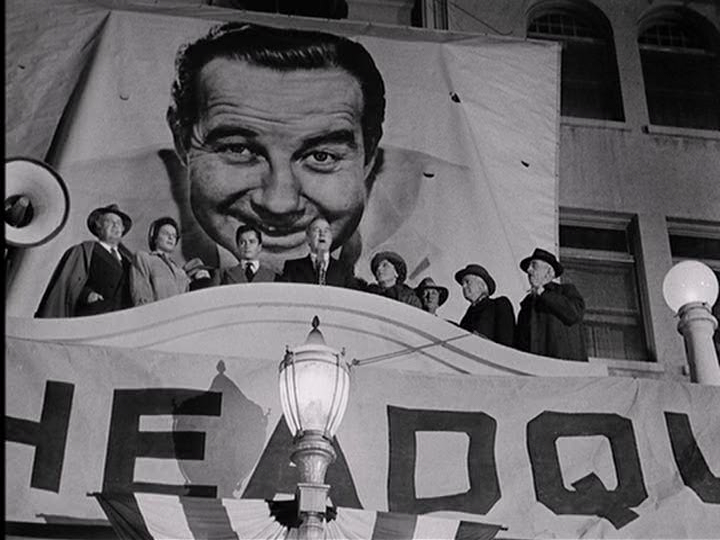All the King’s Men (1949)
“Man is conceived in sin and born in corruption.”
|
Synopsis: |
|
Genres, Themes, Actors, and Directors:
Review: Regarding Crawford, Peary asserts that he “became arguably the worst actor ever to win a Best Actor Academy Award” (!), cynically noting that “after a dozen undistinguished years of performances that failed to prove he deserved anything better than to be in films nobody saw”, he was lucky enough to be “perfectly cast” here as “a two-fisted corrupt politician.” While I’m not well-versed enough in Crawford’s career to comment on him, I’ll agree this character study remains one of the lesser (though still intermittently powerful) attempts by Hollywood to expose political corruption and herd-like adoration of a Strong Leader — which, it should be noted, remain salient themes today. The framing narrative by and about Ireland is particularly weak; we lose respect for him fairly early on, as he remains committed to a man who may once have had good intentions but has clearly turned rotten. However, the direction and cinematography are strong, and the final scenes remain shocking and unexpected. Check out TCM’s article for a fascinating overview of the unconventional editing process that pared this film down to manageable size. Redeeming Qualities and Moments: Must See? Categories Links: |




One thought on “All the King’s Men (1949)”
A no-brainer must-see.
Having recently read the book, this rewatch was a more informed one for me. But to qualify that: I think the film holds up well-enough on its own, it’s just that the book (which is massive) is a fuller, richer experience. The screen version is about as faithful an adaptation as is possible for something so condensed.
At least the film isn’t a bastardization of the book – as happens so often. Many solid works of fiction (and non-fiction) go unread by people who went no further than an unsatisfying transfer to the screen.
I don’t find Ireland’s character (Jack Burden) weak. I find him to be pragmatic in his own romantic idealist way. He understands Stark’s initial motives and agrees with them – and it’s hard not to: the idea of using evil against itself for the purpose of good seems sensible when it’s realized how the world runs. The problems arise when corruption starts to rub off on Stark. It’s a frightening thing to watch.
I also think it’s unfair of Peary to think so little of Crawford’s work and ability as an actor. But then we all have our favorites as well as actors that we don’t take to. Crawford didn’t get a whole lot of genuine opportunities like this one – but there’s also ‘Born Yesterday’, Lang’s ‘Human Desire’, Karlson’s ‘Scandal Sheet’ and perhaps a few others of particular note.
At any rate, ‘ATKM’ is quite a solid film experience (and, agreed, with themes that remain salient today). It’s masterfully directed by Rossen, Guffey’s work as DP is superb, the editing is a particular plus, and the cast is aces.